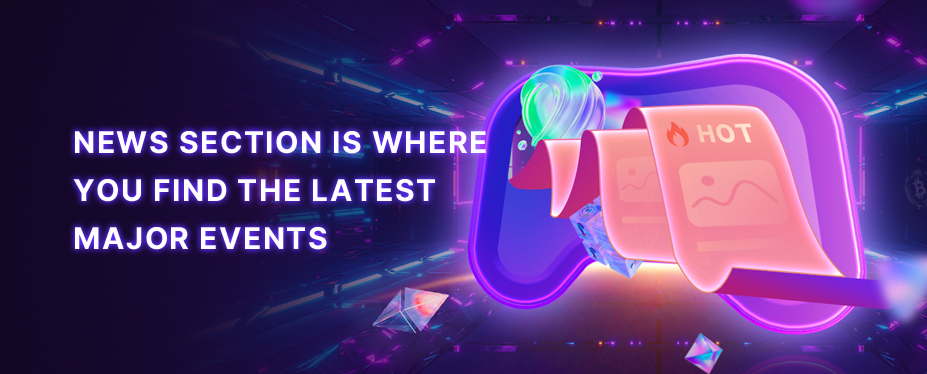4 Ways NFTs Can Help the Music Industry
The music industry is thriving, thanks to the Internet and digital innovations that have made it easier than ever for musicians to find their audiences.
Clearly, we’re living in a golden age for music.
But the growth of streaming services, online radio stations, and other forms of online media has also presented new challenges for the music business.
The difficulties facing the industry include everything from artists not getting paid fairly for their work to arguments over royalty rates and licensing rights.
Fortunately, blockchain technology and NFTs offer some solutions that could help balance out the current unbalanced state of affairs.
Here are 4 examples of how NFTs can change anything for the better for this giant industry.
Breaking Down Barriers to Entry for Emerging Artists
As the digital revolution has made music distribution and discovery easier than ever, it has also created a few new barriers to entry for would-be artists.
There are a lot of factors that can make it challenging for an artist to find success, including a lack of access to resources, financial instability, and a lack of exposure.
However, there is a new tool that has the potential to help artists overcome some of these barriers to entry: non-fungible tokens, or NFTs.
NFTs are digital assets that are unique and cannot be replaced. They can be used to represent a variety of things, including art, music, and other digital creations. And because they’re digital, they can be easily traded and sold online.
This makes NFTs a powerful tool for artists, as they can use them to sell their work directly to fans and collectors. And because NFTs are still a relatively new technology, there are a lot of opportunities for artists to get involved and be pioneers in this new field.
Fair Royalties for Musicians
Another problem facing the music industry is the question of royalties.
While some musicians have enjoyed huge success during the streaming revolution, many have seen their income dwindle.
This is largely because streaming services pay very low royalty rates to artists.
Factors like high-volume royalty payout schedules, delayed payments, and flawed payment methods make it difficult for artists to be compensated appropriately for their work.
This has created a great deal of frustration among musicians who feel like they’ve had the rug pulled out from under them.
NFTs can be directly sold to consumers who wish to buy music.
Since NFTs are digital assets, there are no printing costs, and no risk of unloading inventory.
NFTs can also be exchanged for physical merchandise at a rate determined by the artist. As music is true digital data, there is no need for royalties or licensing.
Artists can set their own price for their music and sell it in any quantity directly to consumers.
Musicians Can Use NFTs to Verify the Ownership of their Music
Many musicians wonder whether it’s possible to get paid for the use of their music.
One way is to authenticate ownership of the music in a blockchain transaction, or “smart contract.”
A smart contract is an automated agreement that executes when specific conditions are met. For example, a smart contract could encode the terms of a license agreement between a licensor and licensee.
In the case of music, a smart contract could encode the ownership rights of an artist.
This could be done through the use of NFTs, which can be used to verify ownership via cryptographic proof. For example, if Bob creates a song and keeps it private until he wants to release it publicly, he can distribute NFTs representing his ownership rights to anyone who wants to verify this ownership.
If someone else created a similar song and distributed tokens representing their ownership rights, then there would be clear evidence that Bob’s song was plagiarized. The second song was not created by Bob, making it impossible for him to claim copyright ownership over his own work.
NFTs Can Help Consumers Assert Their Rights
NFTs also have the potential to revolutionize the music industry by helping consumers assert their rights.
With NFTs, consumers can purchase music directly from artists and own it forever.
They can also resell it or trade it if they wish.
This is a big departure from the traditional music industry model, where consumers only lease music from labels and do not have any ownership rights.
NFT technology has the potential to give consumers more control over how they listen to music.
For example, they can choose to listen to an artist’s entire album or just individual tracks. They can also choose to receive new music as it is released or wait until an entire album is released before listening.
Overall, NFTs have the potential to radically change the music industry and give consumers more control over their music listening experience.
Conclusion
The music industry has faced many challenges in the digital age.
Blockchain technology, and specially NFTs, can help address these issues and create a more equitable industry for musicians, and even consumers.
NFTs have the potential to create new opportunities for music education and fan engagement.
In conclusion, NFTs can help the music industry in a variety of ways. They can be used to fairly and accurately pay musicians for their work, to license music more easily and efficiently, to help promote and distribute music, and more.






Reviews